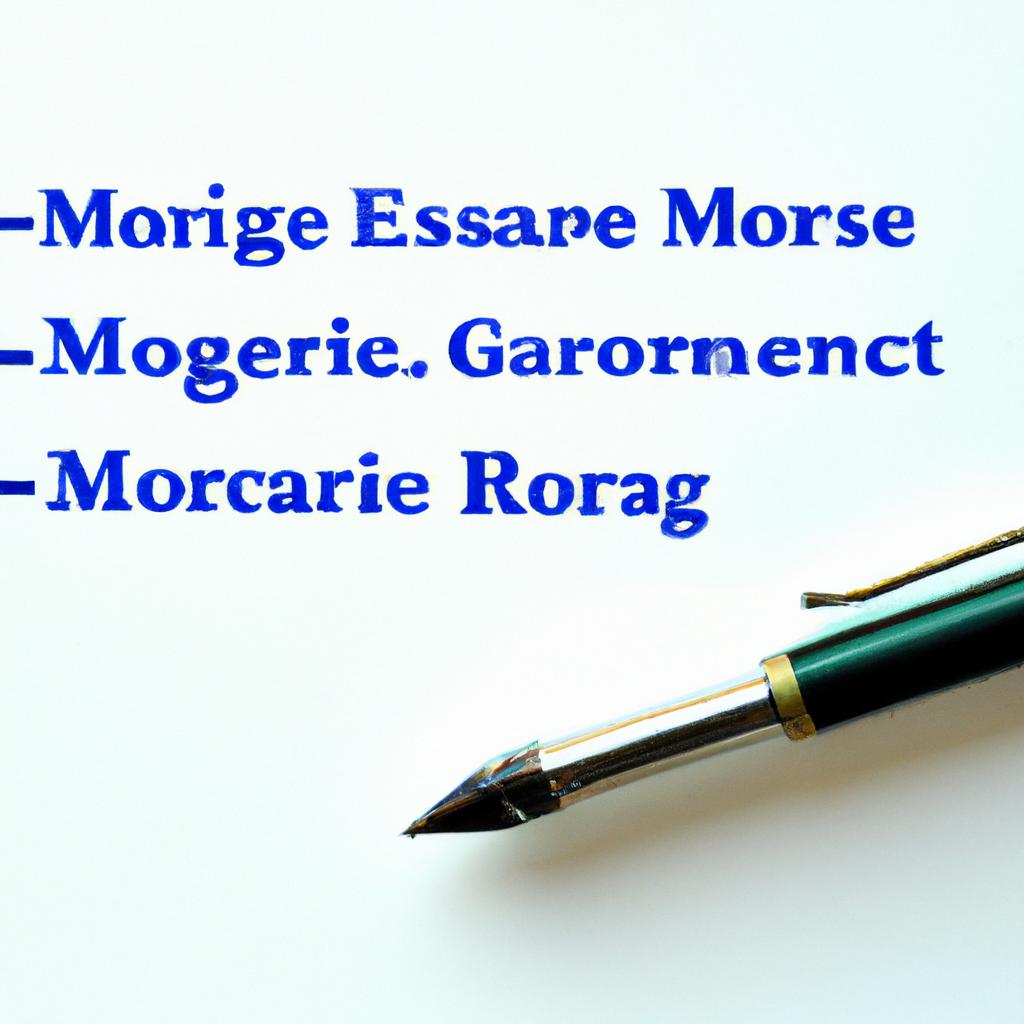In the complex web of estate planning and probate, unforeseen circumstances can often arise, leaving inheritors grappling with unfamiliar legal territory. One such scenario that has gained prominence in recent years is inheriting a house with a reverse mortgage. As experts in the field of elder law and estate planning, the team at Morgan Legal Group in New York City is well-versed in navigating the intricacies of this unique situation. Join us as we delve into the legal implications, challenges, and considerations that come with inheriting a house with a reverse mortgage.
– Understanding the Implications of Inheriting a House with a Reverse Mortgage
When inheriting a house with a reverse mortgage, it is crucial to understand the implications and potential challenges that may arise. One key consideration is the repayment of the reverse mortgage loan balance, which must be paid off in full upon inheriting the property. This repayment can be done through various means, including selling the house, refinancing the loan, or paying off the balance with other assets.
Additionally, heirs should be aware of their rights and responsibilities when inheriting a house with a reverse mortgage. It is important to review the terms of the loan agreement, consult with a legal professional, and explore all available options to ensure a smooth and efficient process. By taking the time to fully understand the implications of inheriting a house with a reverse mortgage, heirs can navigate the situation effectively and make informed decisions moving forward.

– Key Considerations for Beneficiaries of a Property Subject to a Reverse Mortgage
When inheriting a house with a reverse mortgage, there are several important factors that beneficiaries need to take into account. Here are some key considerations to keep in mind:
- Loan Repayment: Beneficiaries need to be aware that the reverse mortgage will need to be repaid once the property is transferred to them. This repayment can typically be done by selling the property or refinancing the loan.
- Property Maintenance: It is essential for beneficiaries to prioritize the maintenance of the property to avoid any risk of foreclosure. This includes regular upkeep, paying property taxes, and homeowners insurance.
- Impact on Inheritance: The reverse mortgage debt will need to be settled before beneficiaries can inherit the property outright. It’s crucial to understand how this debt will impact the overall inheritance from the property owner.
| Loan Repayment | Beneficiaries need to be aware that the reverse mortgage will need to be repaid once the property is transferred to them. |
|---|---|
| Property Maintenance | Beneficiaries should prioritize the maintenance of the property to avoid any risk of foreclosure. |
| Impact on Inheritance | The reverse mortgage debt must be settled before beneficiaries can inherit the property outright. |

– Navigating the Complexities of Settling an Estate with a Reverse Mortgage
Inheriting a house with a reverse mortgage can present a unique set of challenges that require careful navigation. When a loved one passes away and leaves behind a home with a reverse mortgage, there are several important factors to consider in settling the estate.
First and foremost, it is essential to understand the terms of the reverse mortgage and how it will impact the inheritance process. **Key considerations include:**
- The outstanding balance on the reverse mortgage
- The options for repaying the loan
- The implications for the heirs and beneficiaries

– Recommendations for Executors and Heirs Dealing with a Reverse Mortgage on an Inherited Property
When inheriting a house with a reverse mortgage, it is crucial for both executors and heirs to understand the unique challenges and considerations that come with this type of property transfer. Here are some recommendations to help navigate this complex situation:
First and foremost, **consult with a probate attorney** who has experience dealing with reverse mortgages on inherited properties. They can provide invaluable guidance on the legal implications, responsibilities, and options available to you. Next, **communicate with the lender** to discuss the outstanding balance, repayment options, and potential consequences if the mortgage is not paid off. It is important to have a clear understanding of the terms and conditions of the reverse mortgage to make informed decisions.
Q&A
Q: What happens if I inherit a house with a reverse mortgage?
A: Inheriting a house with a reverse mortgage can be complex, as the loan balance must be repaid before the heirs can take ownership of the property.
Q: Can I keep the house if I inherit it with a reverse mortgage?
A: Heirs have the option to keep the house by paying off the remaining loan balance, sell the house to repay the loan, or walk away from the property.
Q: What are the consequences of not repaying the reverse mortgage loan?
A: If the loan balance is not repaid, the lender may foreclose on the property to recoup the money owed.
Q: Are there any alternatives for handling a reverse mortgage on an inherited property?
A: Heirs may also choose to refinance the loan, obtain a new loan to pay off the reverse mortgage, or negotiate with the lender to find a solution.
Q: How can I navigate the process of inheriting a house with a reverse mortgage?
A: It is advisable to seek the guidance of a financial advisor or attorney to understand the options available and make informed decisions regarding the inherited property.
Insights and Conclusions
Inheriting a house with a reverse mortgage can be a complex and emotional experience. While it may come with challenges and financial implications, it also provides an opportunity to honor and preserve the legacy of your loved one. By seeking guidance from professionals and understanding your options, you can navigate this unique situation with confidence and compassion. Remember, a house is more than just a property – it holds memories, history, and a sense of belonging that can be cherished for generations to come.


